thesis
This page is dedicated to my PhD thesis about stable cycles for mobile robots navigation
Event-driven Cycle Navigation for Mobile Robots
Introduction
This thesis explores the fascinating world of stable cycles in robotics, with a particular focus on marine vehicles. Through theoretical developments and experimental validations, we investigate how cycle navigation can be leveraged to enhance the efficiency and reliability of robotic systems. The work combines control theory, set methods, and practical engineering to develop novel approaches for achieving stable, repeatable motions in challenging underwater environments.
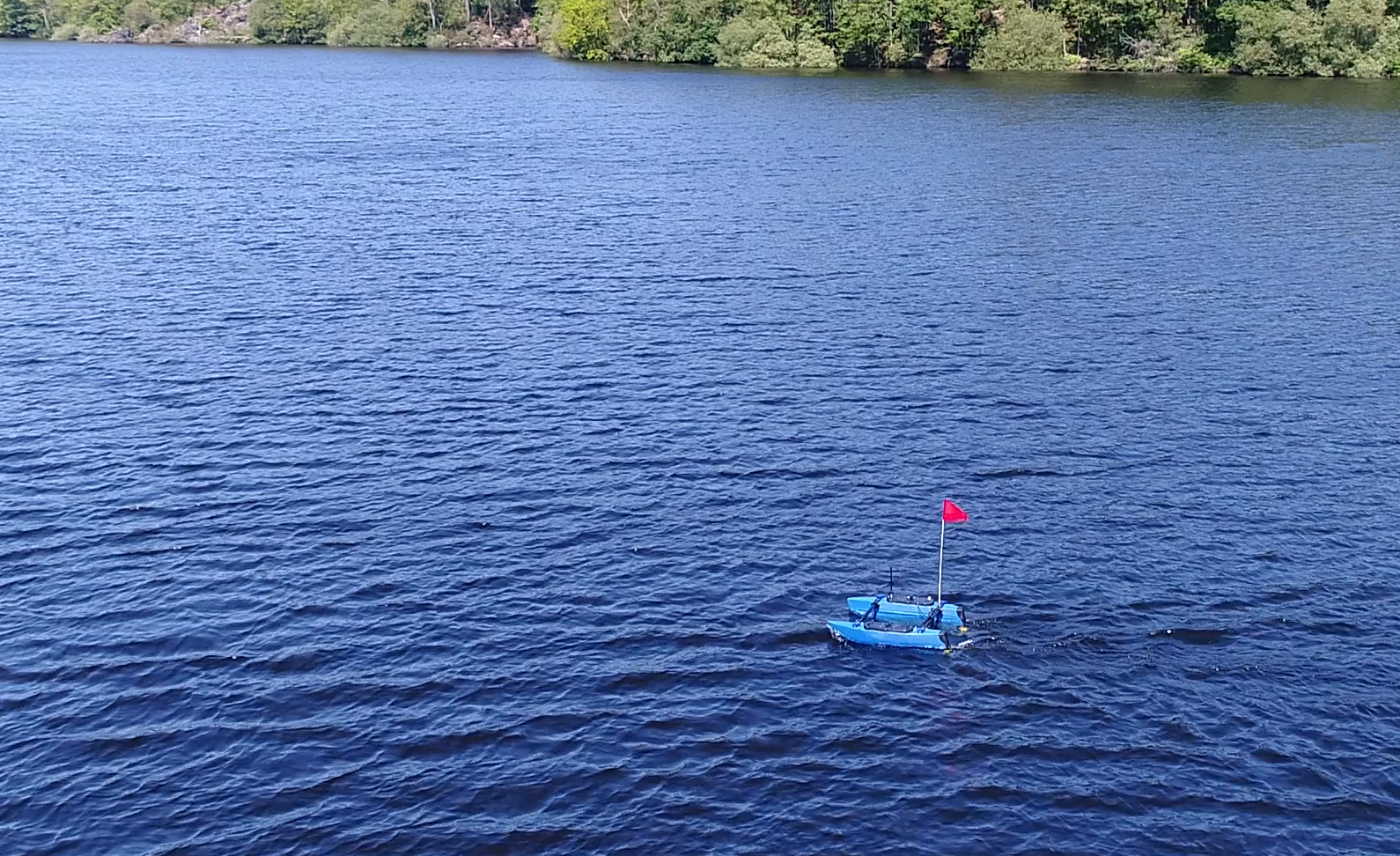
Key contributions include new methods for cycle stabilization, energy-efficient locomotion patterns, and robust control strategies that can be applied to various robotic platforms. The research addresses both fundamental theoretical aspects and practical implementation challenges, providing a comprehensive framework for understanding and utilizing cyclic behaviors in robotic applications.
Thesis manuscript and Reviewer’s reports
Organization
The thesis defence will take place on Wednesday, 15 October 2025 at 9:30 a.m. at ENSTA Bretagne in room F144. A dinner at a restaurant is organised the evening before by Luc Jaulin for the members of the jury.
Thesis defense
Photos taken during the defense
Here are some photos taken during the thesis defense. Many thanks to Damien Esnault for the pictures!
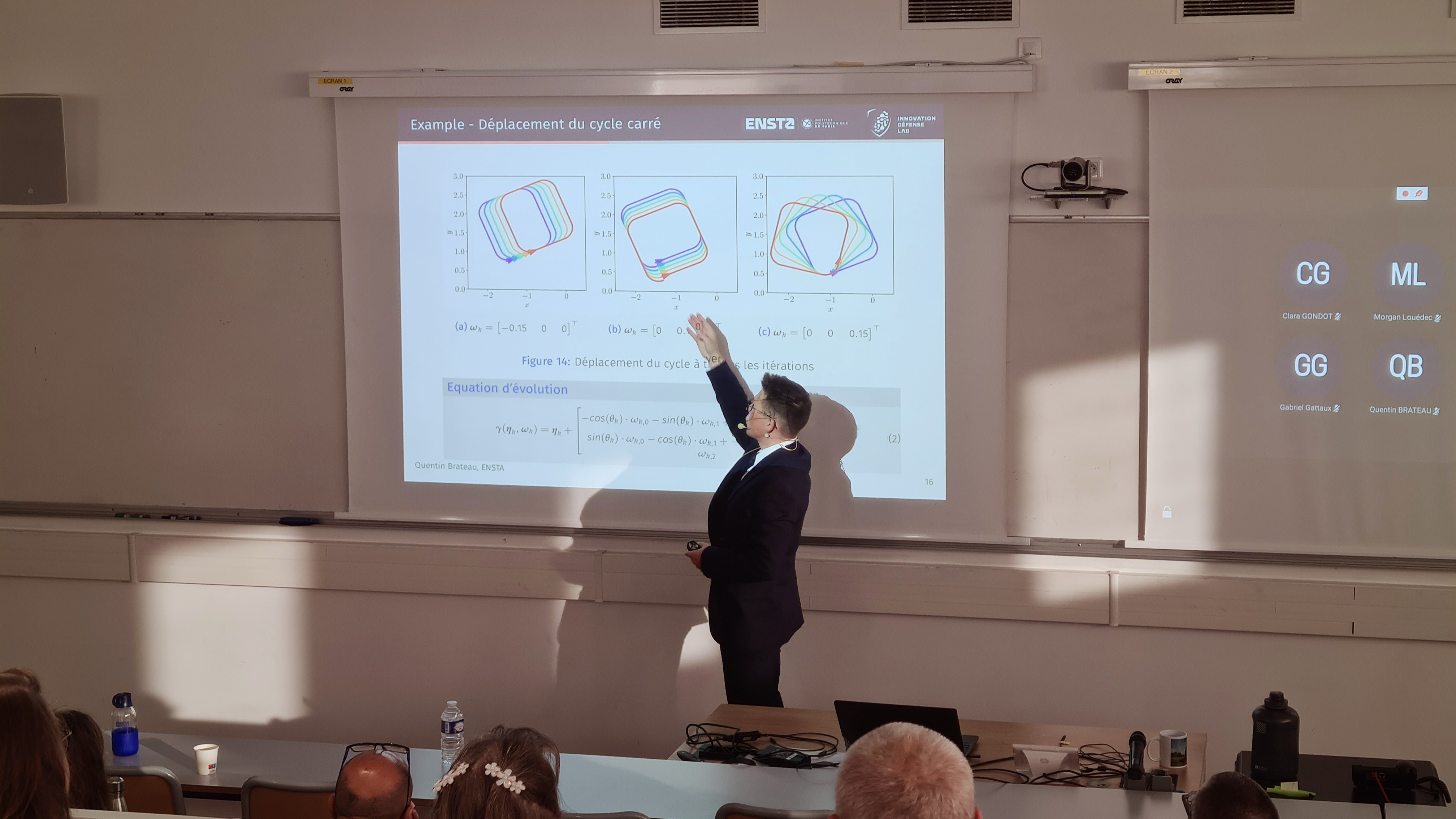
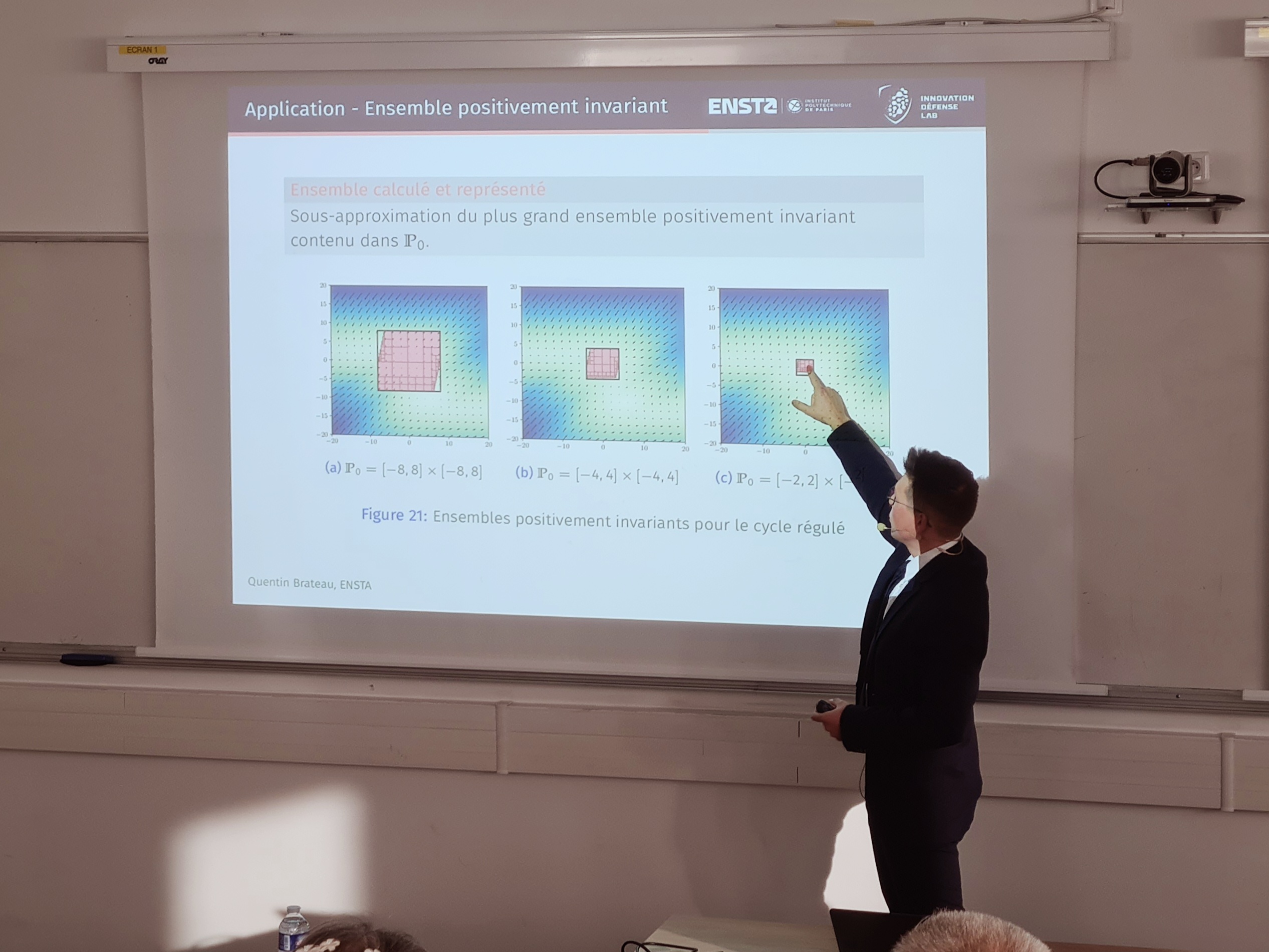
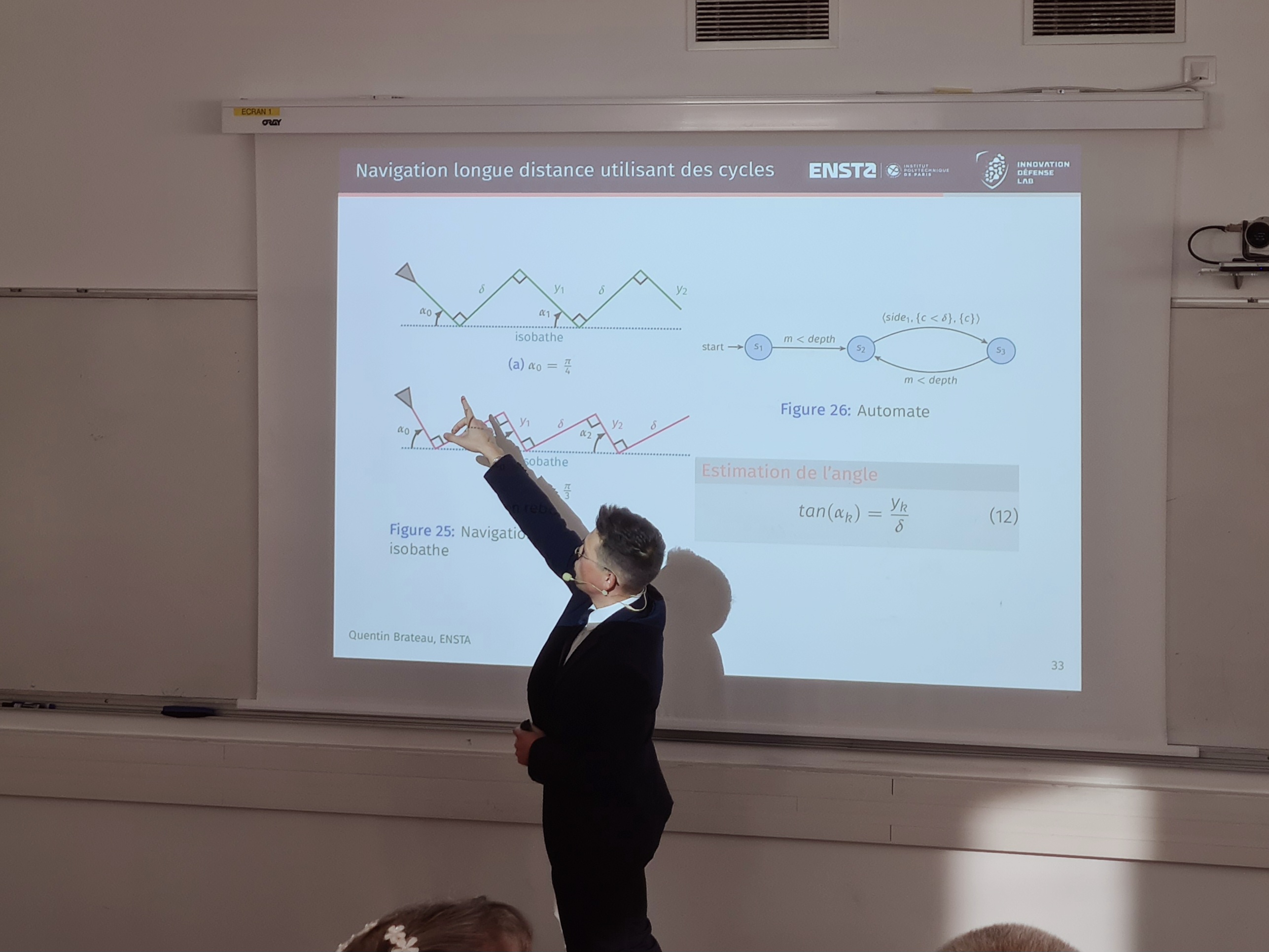
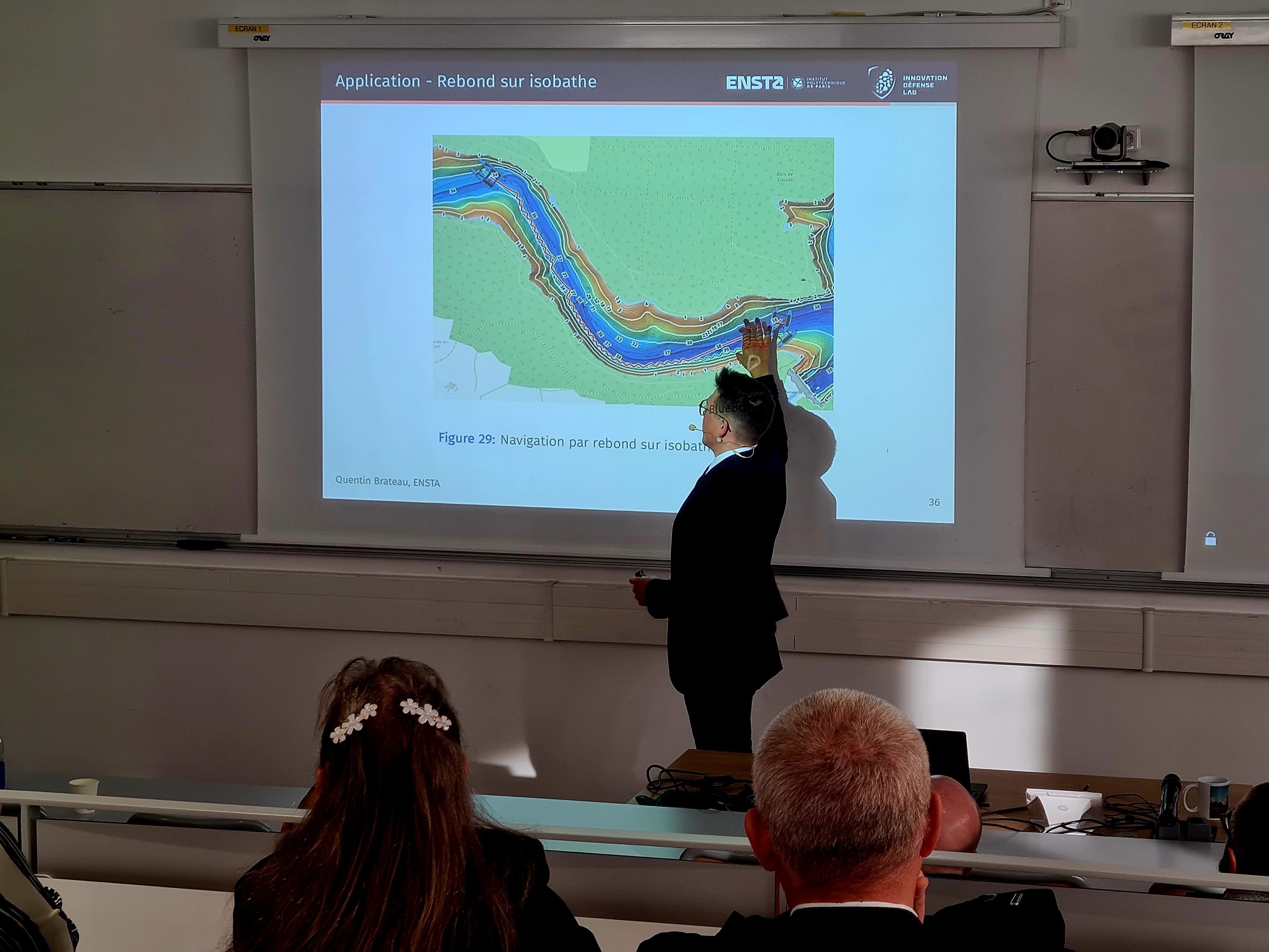
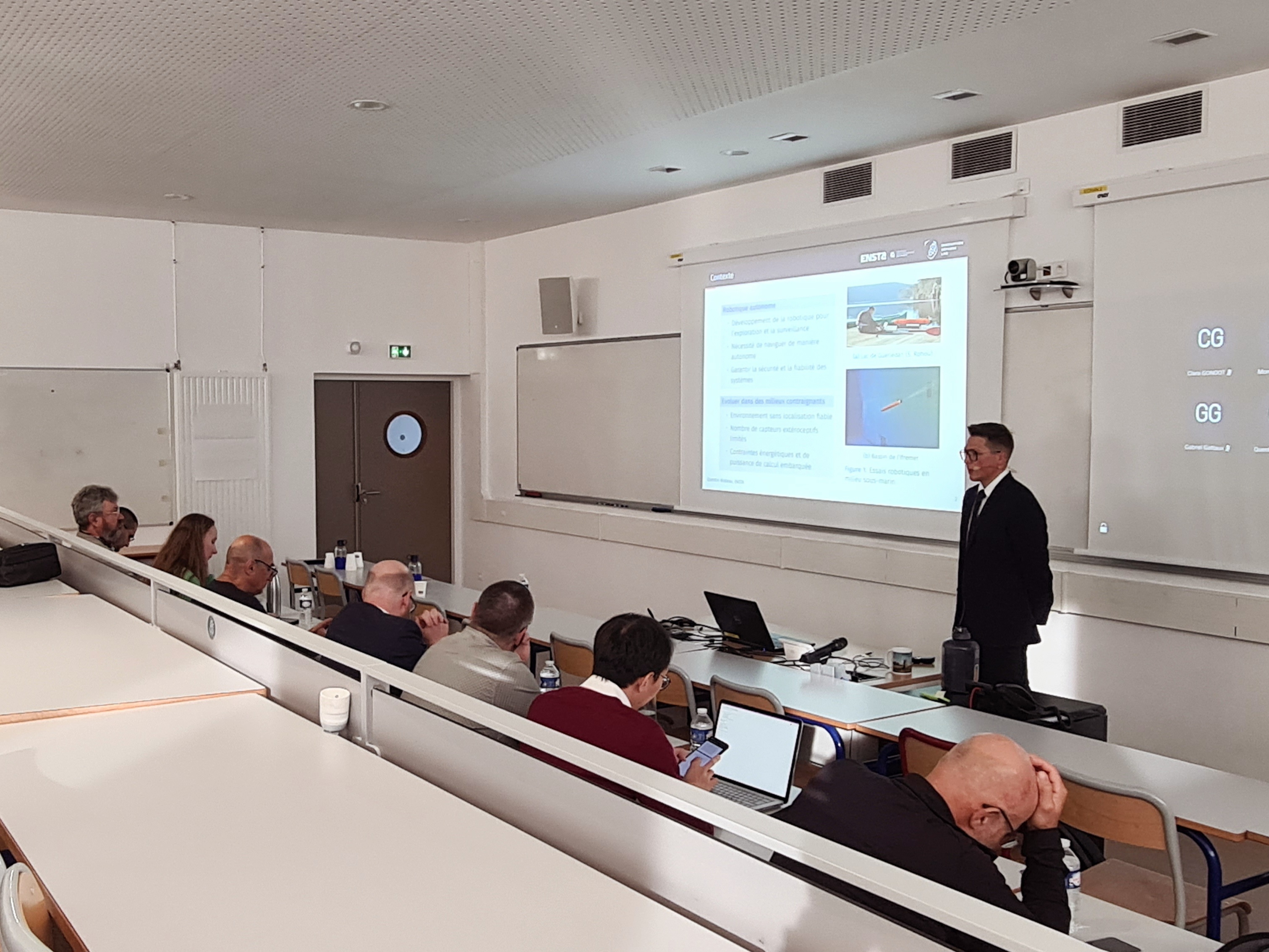
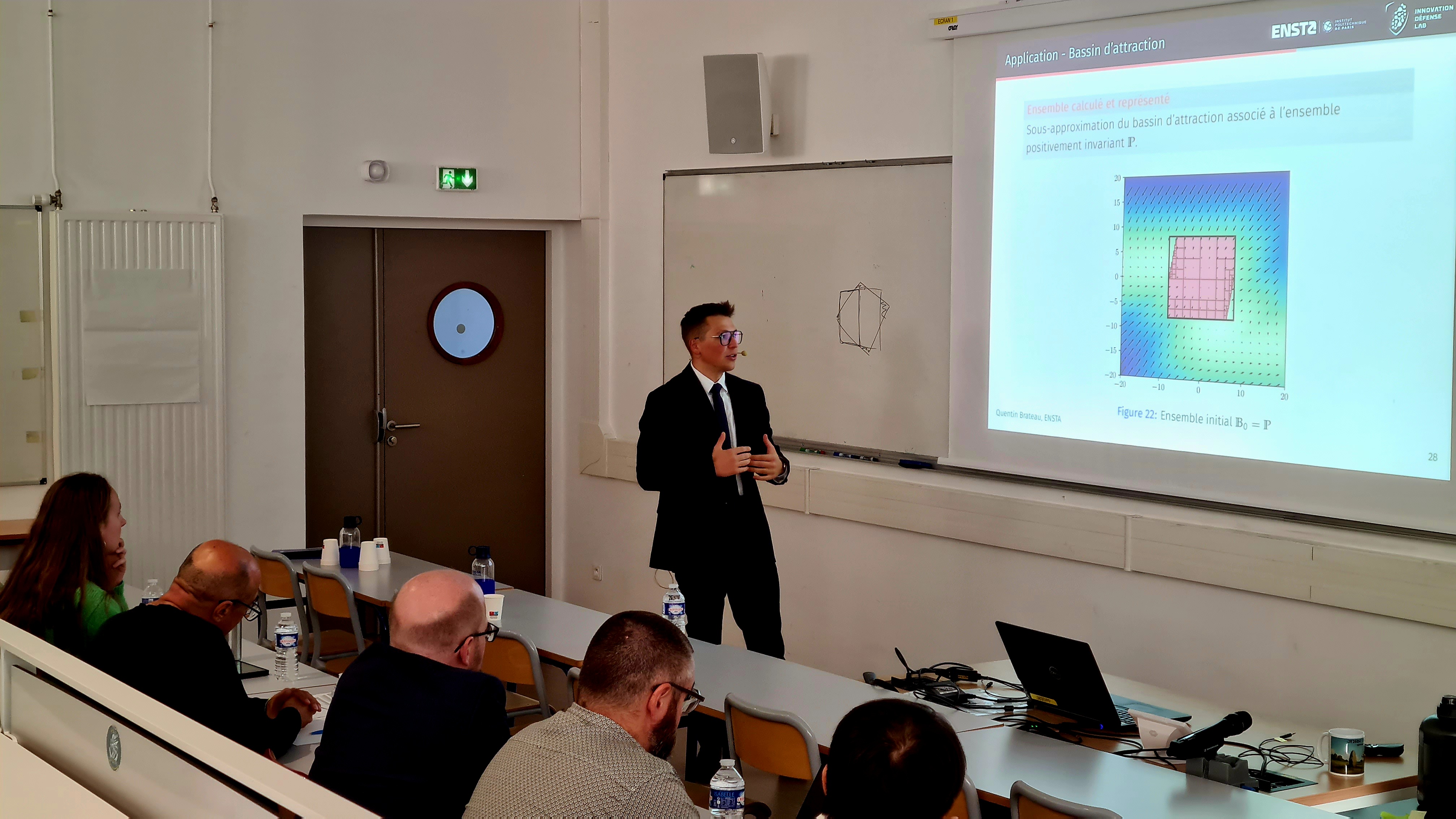
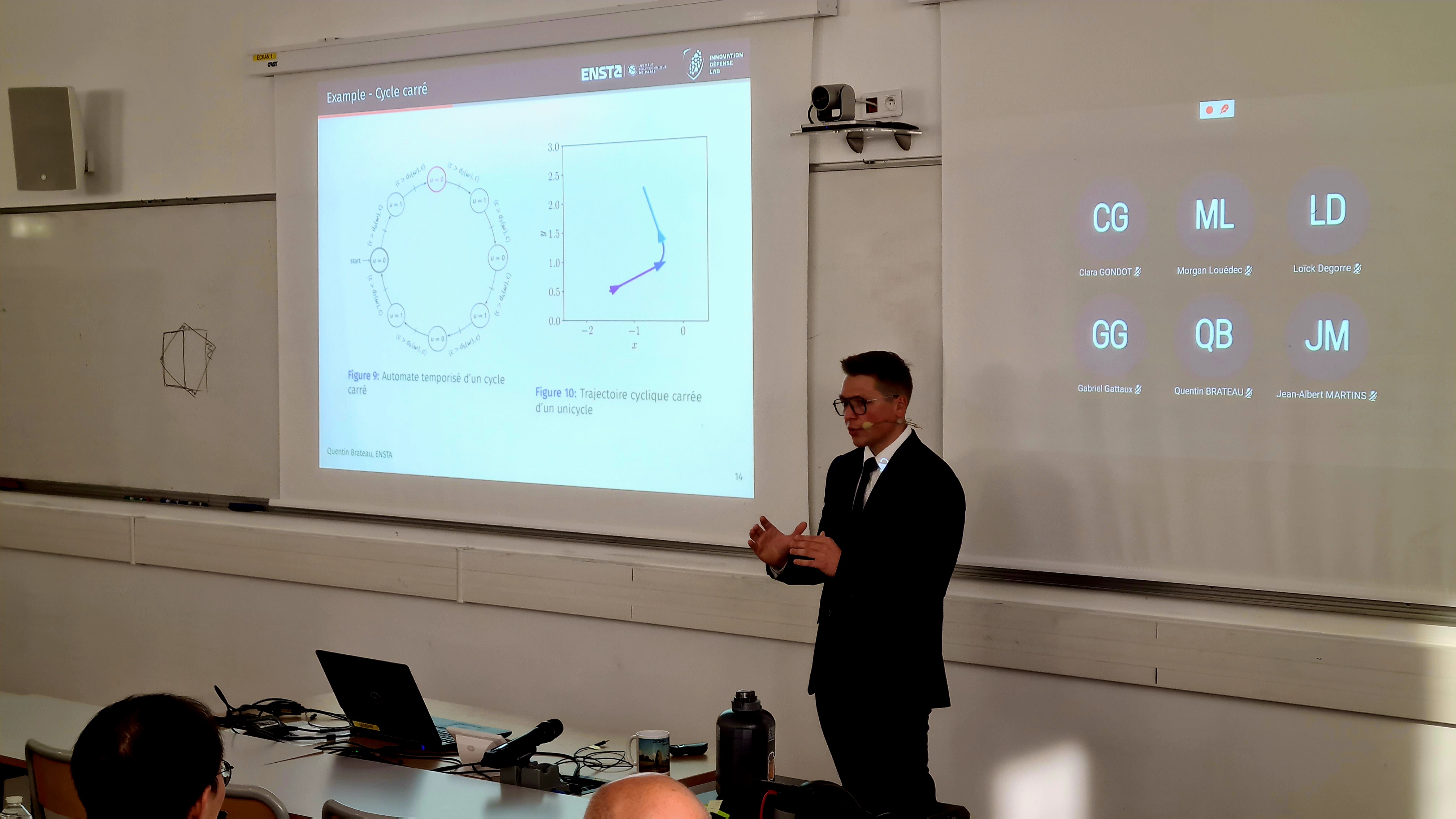
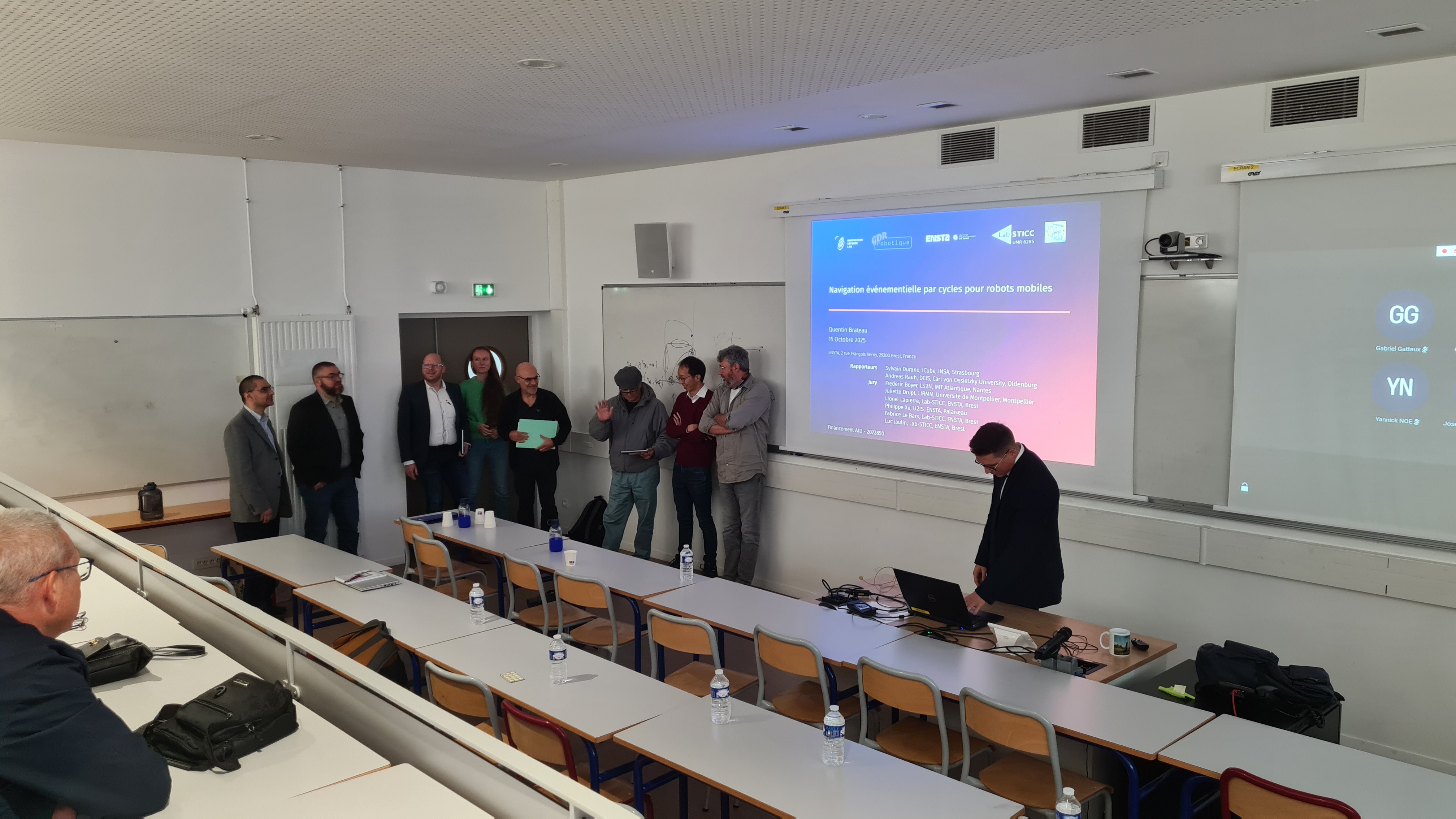

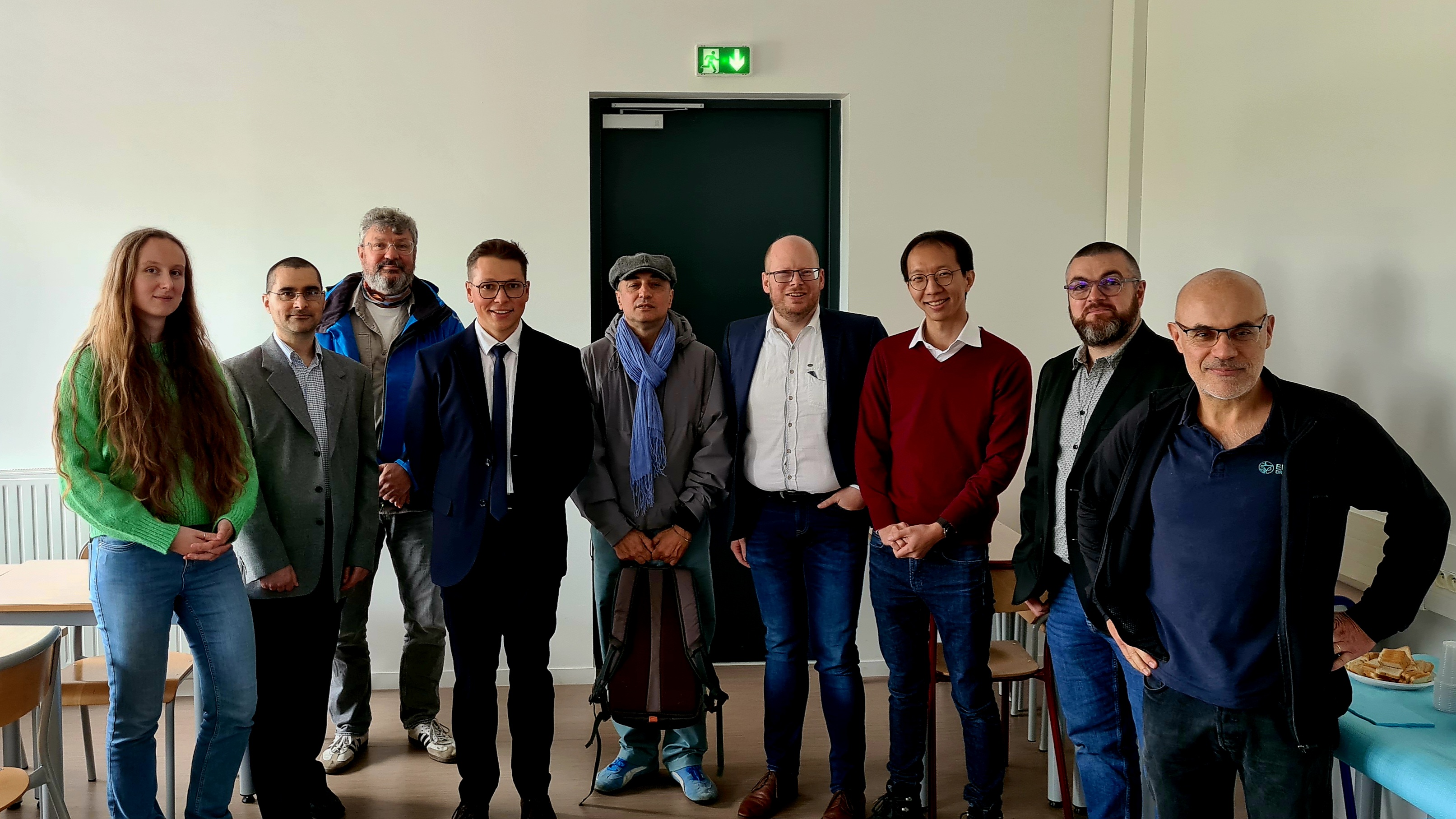
Recording of the defense
Here is the recording of the thesis defense:
And the video of the experiments conducted during the thesis and presented during the defense:
Jury
Reviewers
- Full Professor Andreas Rauh, HDR, DCIS, Carl von Ossietzky University of Oldenburg, Germany,
- Associate Professor Sylvain Durand, HDR, ICube, INSA Strasbourg, France.
Examinators
- Full Professor Frédéric Boyer, HDR, LS2N, IMT Atlantique Nantes, France,
- Full Professor Lionel Lapierre, HDR, Lab-STICC, ENSTA, France,
- Full Professor Philippe Xu, HDR, U2IS, ENSTA, France,
- Associate Professor Juliette Drupt, LIRMM, University of Montpellier, France.
Supervisors
- Full Professor Luc Jaulin, HDR, Lab-STICC, ENSTA, France,
- Associate Professor Fabrice Le Bars, Lab-STICC, ENSTA, France.
Grant
This work was supported by the French Ministry of Defence (DGA / AID) under the PhD grant 2022850.